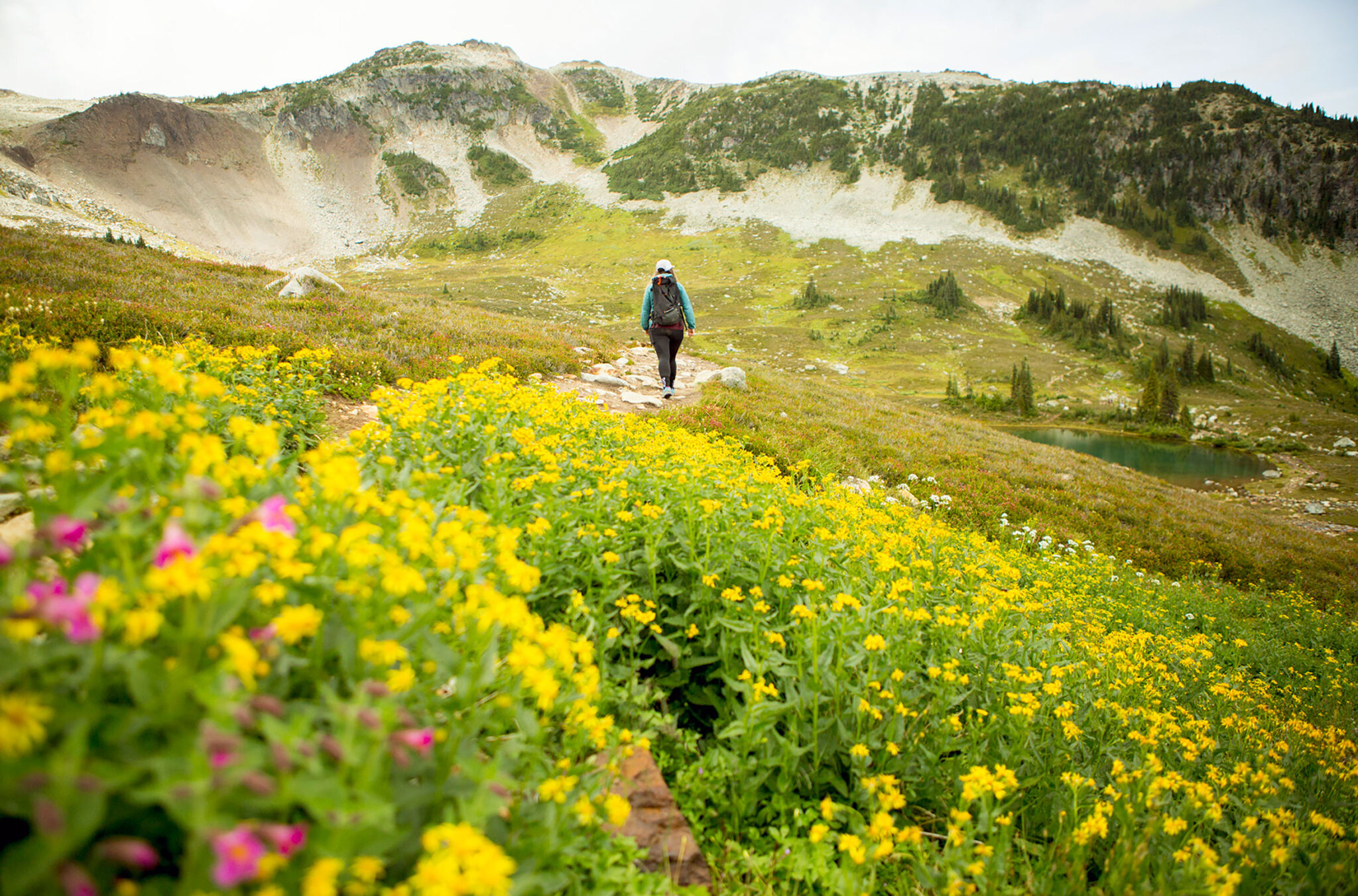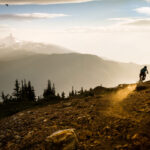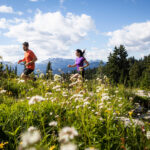Editor’s Note: This post was originally written in 2019, but the wildflowers are still blooming so we’ve simply updated a few links and added some trail safety info.
Mountain air is even sweeter when you’re surrounded by wildflowers. Equal parts delicate and hardy, alpine wildflowers grow in some of the toughest environments. The contrast of their graceful appearance next to rugged peaks is is captivating. Only here for a short time each summer, it takes some planning to see them, or if you’re lucky, a “happy accident” as the beloved landscape painter Bob Ross used to say.
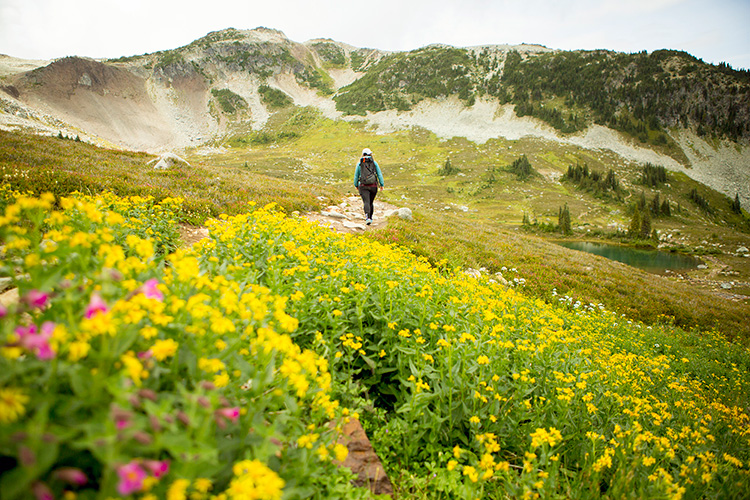
When to See Alpine Wildflowers in Whistler
In typical summer conditions, the wildflowers bloom near the end of July and stick around until mid-August. These dates shift slightly each year depending on the previous winter’s snowpack and the melt rate of spring.
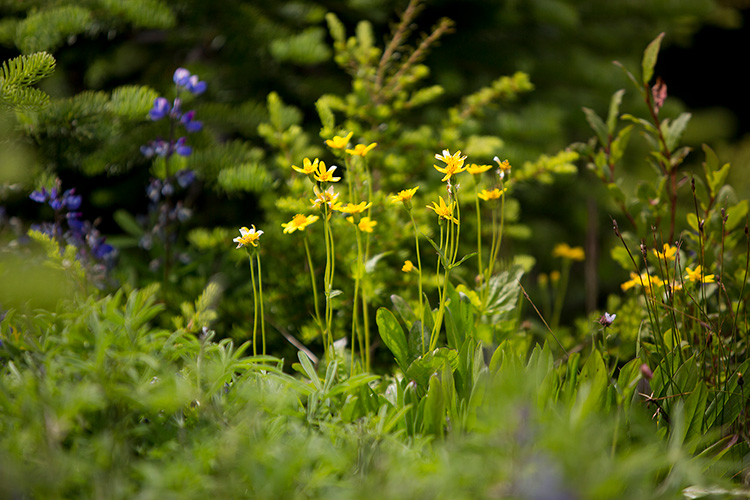
One thing that never changes is where you can see them, and that, of course, is in the alpine. Get above the trees and into an open alpine meadow, find a tarn, or scout for a small alpine stream, all of these environments offer the right growing conditions for wildflowers to bloom.
Wildflower season is, arguably, best experienced on an alpine hike but you can also catch a glimpse of the flowers from the gondolas and viewpoints while sightseeing on Whistler and Blackcomb Mountains. But if you have the time and you’re a comfortable hiker, nothing compares to getting up close and personal with these wild beauties.
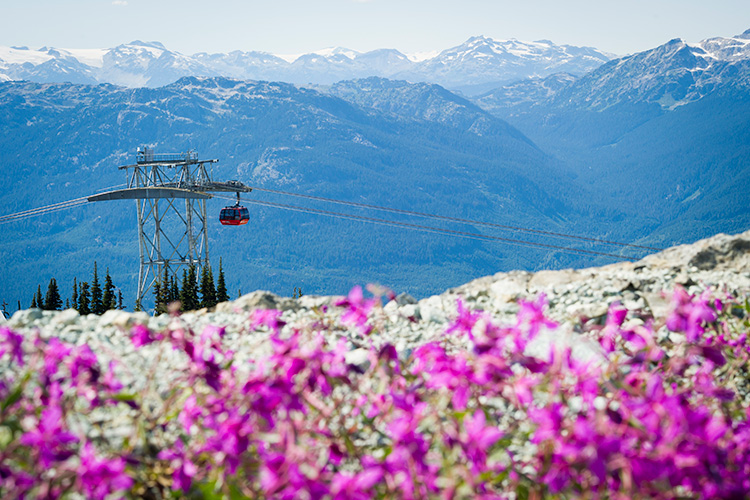
Whistler Hikes to See Alpine Wildflowers On
High Note Trail, Whistler Mountain
From the top of the Whistler Mountain Peak Express chairlift, enjoy a 9.4-kilometre hike of ridge-winding beauty. Near Flute you’ll see the stunning Cheakamus Lake below before traversing over the bowls and ridges of the Symphony and Harmony areas.
As your wrap back around the front and near Whistler Mountain you’ll come across a plethora of wildflower locations including multiple meadows, a handful of streams and two pristine tarns. The hike takes three to four hours, which allows for plenty of flower gawking and photo-taking along the way.
Whistler Mountain Hiking Trail Map PDF (Page 1)
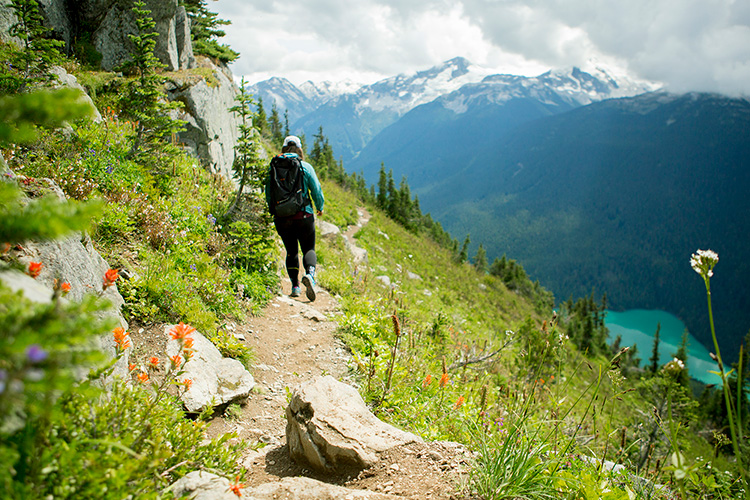
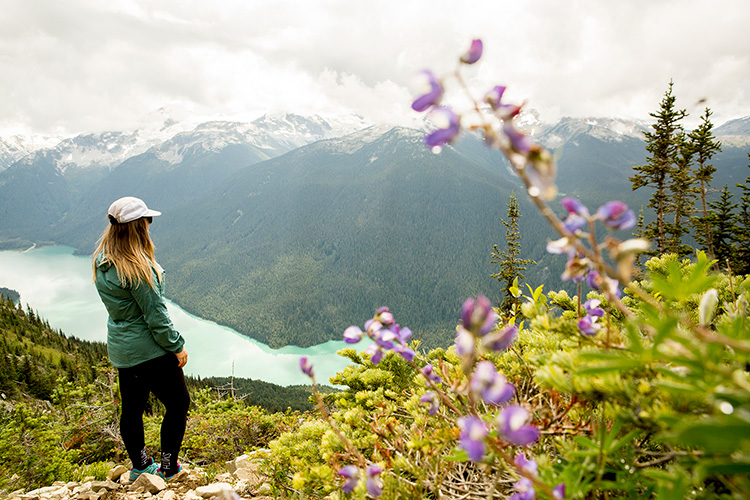
Decker Tarn, Blackcomb Mountain
From the top of the Blackcomb Gondola, head towards Decker Tarn via the Overlord Trail and the Lakeside Loop detour as this area often blooms with alpine fireweed and Indian paintbrush in the early wildflower season. The loop is 7.1 kilometres and will take approximately three to four hours, round trip.
Blackcomb Mountain Hiking Trail Map PDF (Page 2)
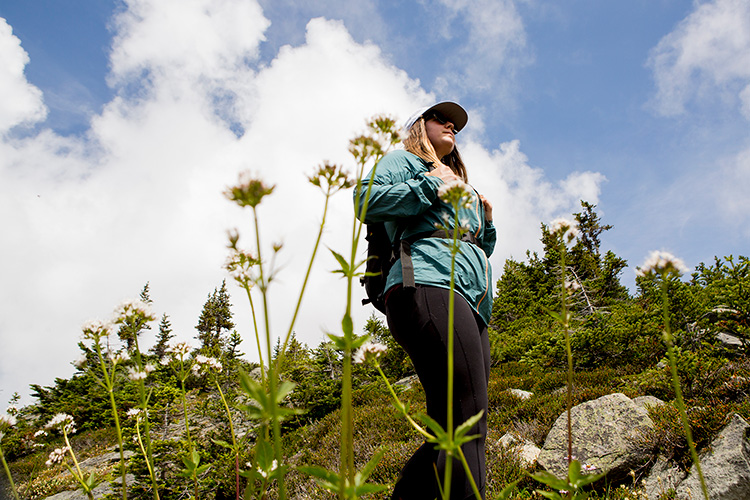
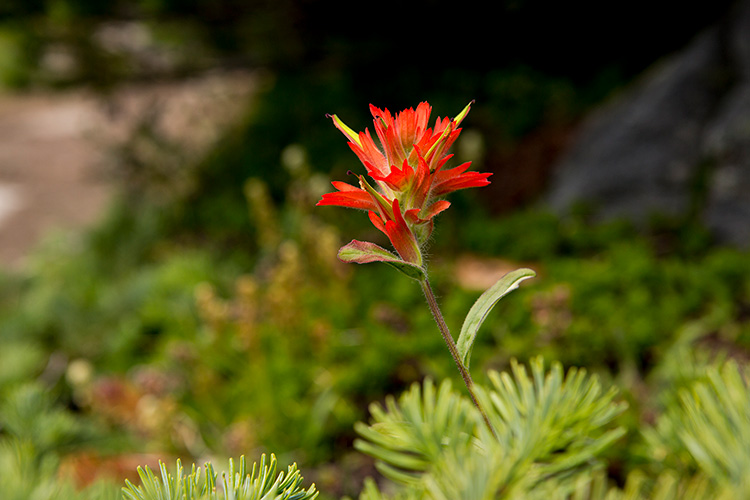
Conflict Lake, Callaghan Valley
This 10-kilometre round-trip hike in the Callaghan Valley offers some of the largest fields of wildflowers, in a stunning and remote location. You’ll need four-wheel drive and good clearance to reach the trailhead at Callaghan Lake.
From there you can enjoy the moderate hike to Conflict Lake and bask in the beauty of the wildflowers in-between dips in the cool, glacial-fed water.
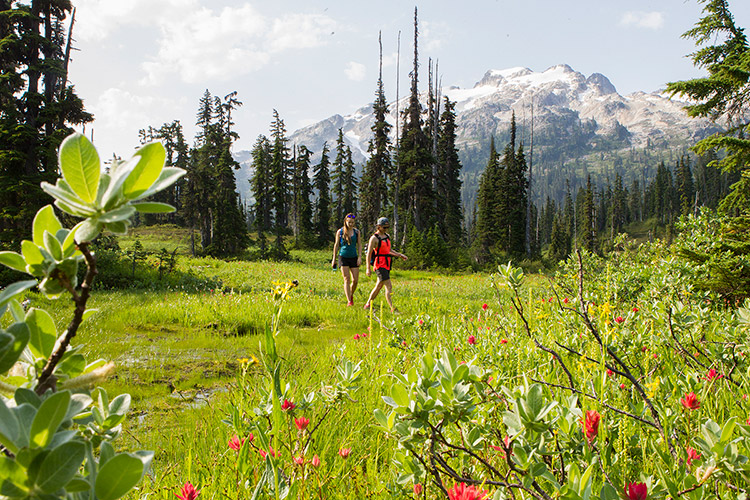
Black Tusk, Garibaldi Provincial Park
There are many ways to hike to Black Tusk, but all of the paths include wildflowers galore. The basins surrounding Black Tusk offer the perfect growing conditions for a collection of wildflowers. We suggest reading our Insider’s Guide to Hiking Black Tusk before taking on this iconic Whistler hike.
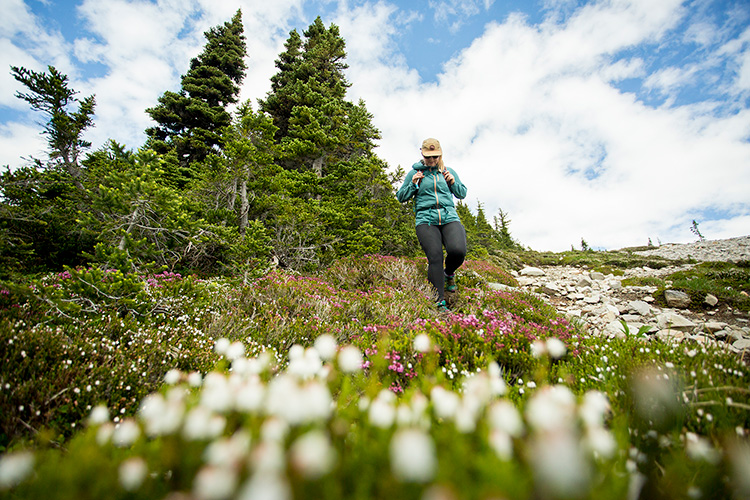
Rainbow Lake, Whistler
Tucked beneath Rainbow Mountain sits Rainbow Lake, an impressively sized alpine lake with the look of an infinity pool. The 16-kilometre round-trip hike offers a shady trail and wildflowers upon your final destination.
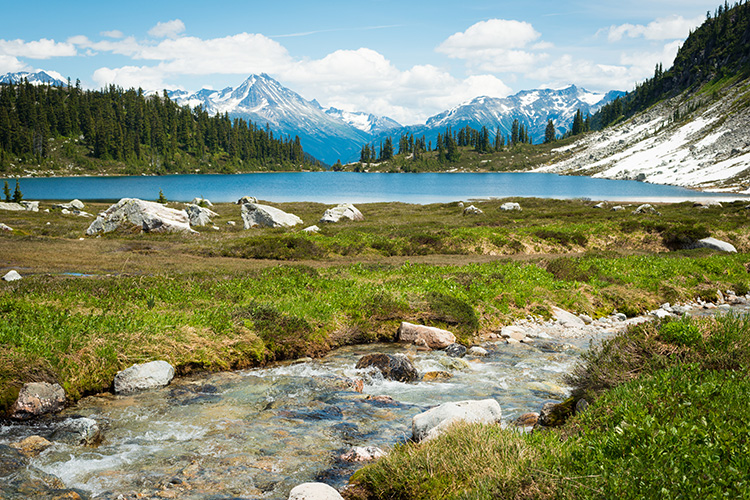
Alpine Wildflower Hiking Etiquette
First things first, while the colorful fields of wildflowers may look like a tempting place to lie down, walk through or picnic, pretty please don’t! The alpine environment is very sensitive, including the wildflowers that adorn the landscape.
From the trail, you’ll be close enough to smell them and appreciate the uniquities of each species close up. Do not pick these precious flowers or trample on them. Whistler trail crews have worked hard to design networks that preserve as much of the landscape’s natural integrity as possible while allowing us to experience them with ease. Thank you trail crews!
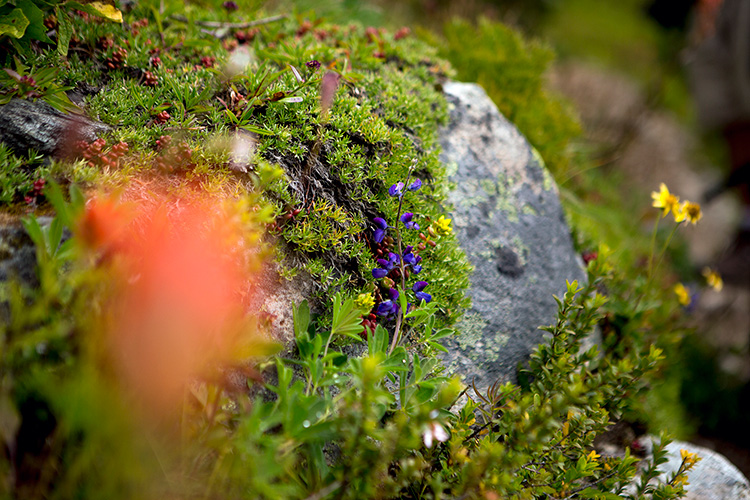
As on any hiking excursion, pack out what you pack in. Take only photographs and create only memories while in the backcountry, these will surely last longer than any bouquet or associated novelty. Keep the backcountry as wild as the wildflowers that coat their alpine hiking trails and you’ll be able to enjoy them year after year.
Happy hiking, photographing and jaw-dropping!
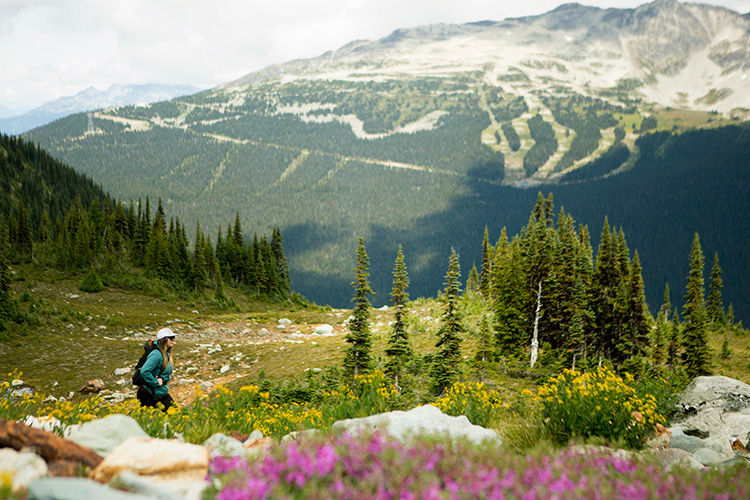
Hike these trails yourself or in the company of a guide who knows a thing or two about the mountain you’re climbing over and the wildflowers at your feet, you can book a private hiking tour (and everything else for your trip) over at Whistler.com.
Spring savings are calling! There’s so much to see and do in spring, you’ll want plenty of time for fun in the sun. Extend your stay and book midweek for increased savings, with 3 nights starting from $135 CAD per night.
For summer, book ahead and save up to 25% on lodging. Plus, you'll receive a free $100 CAD Activity Voucher on stays of 3 or more nights ($200 for 5 nights).
Insider Tip: BC or Washington resident? Sign up for Whistler Rewards to access additional savings and exclusive perks.
